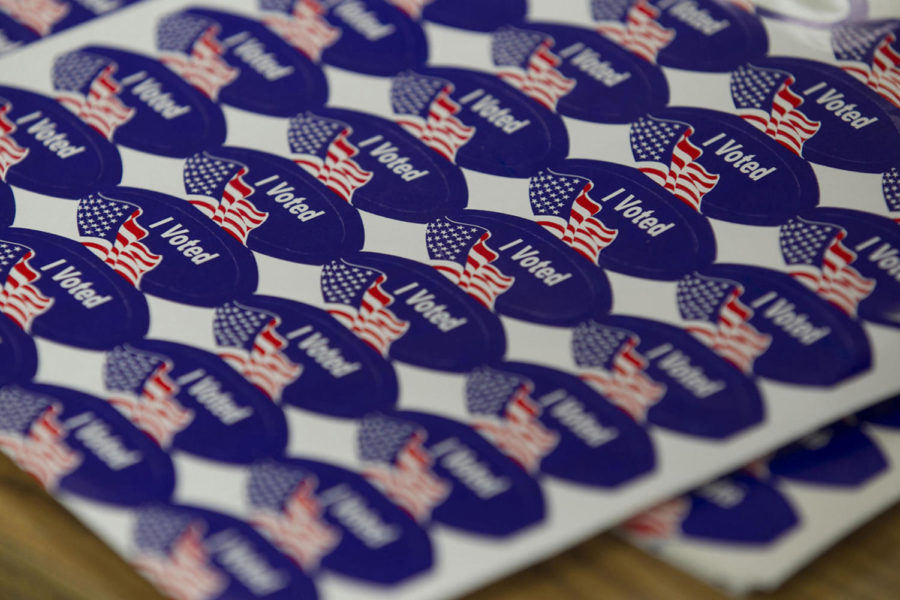Voting Is Not a Privilege
Every American’s constitutional right to vote should be protected.
PHOTO | MCT Campus
“I voted” stickers in a June 2018 file image. (John Gibbins/San Diego Union-Tribune/TNS)
Death row attorney Bryan Stevenson wrote in his bestselling book “Just Mercy” that “each of us is more important than the worst thing we’ve done.” Yet despite the “just” legal system, those free from incarceration often face more challenges in finding employment, reincarceration, and poverty. And felons, violent or nonviolent, have their right to vote revoked for an amount of time according to state law without the circumstances of individual cases being considered. Twelve states, including Kansas and Missouri, impose a lifetime ban, according to the National Conference of State Legislatures.
2020 presidential candidate Bernie Sanders made a bold claim during a Fox News event April 15: that all prisoners, including those who committed “terrible crimes,” should be allowed to vote. The statement sparked heavy debate, making some uncomfortable because it forced Americans to look at the incarcerated (and formerly incarcerated) as people and, more importantly, as citizens.
An American cannot lose citizenship for serving jail time or committing a crime, so their rights should not be able to be revoked. The issues voted on in each election affect this group of people the same as those who have no felony convictions or have never been to jail. It’s a dangerous and slippery slope when the rights of Americans can be taken away so easily.
Denying ex-cons and prisoners is denying the American people’s voice. In the 2016 presidential election, 6.1 million citizens were barred from participating due to felony convictions, according to The Sentencing Project, and it is estimated that one in 13 black Americans can no longer vote due to these restrictions. Millions of voices are silent on issues that affect them. This is not what democracy looks like.
33 percent of the African American male population have felony convictions in the United States, and 15 percent of African American males have been or are incarcerated, according to the University of Georgia. These laws clearly target minorities who are statistically more likely to be affected by these discriminatory laws.
Prisoners and ex-felons are citizens and therefore should always possess the right to vote. For the government to keep enforcing these ridiculous policies is an insult to democracy and to the foundation of the United States government- a government which is meant to give the power to the people, yet leave a sizeable portion without a voice. Those who have served their time should not have another sentencing on top of their incarceration. Voting rights should remain a guaranteed right for every American, behind bars, previously behind bars, or free.



